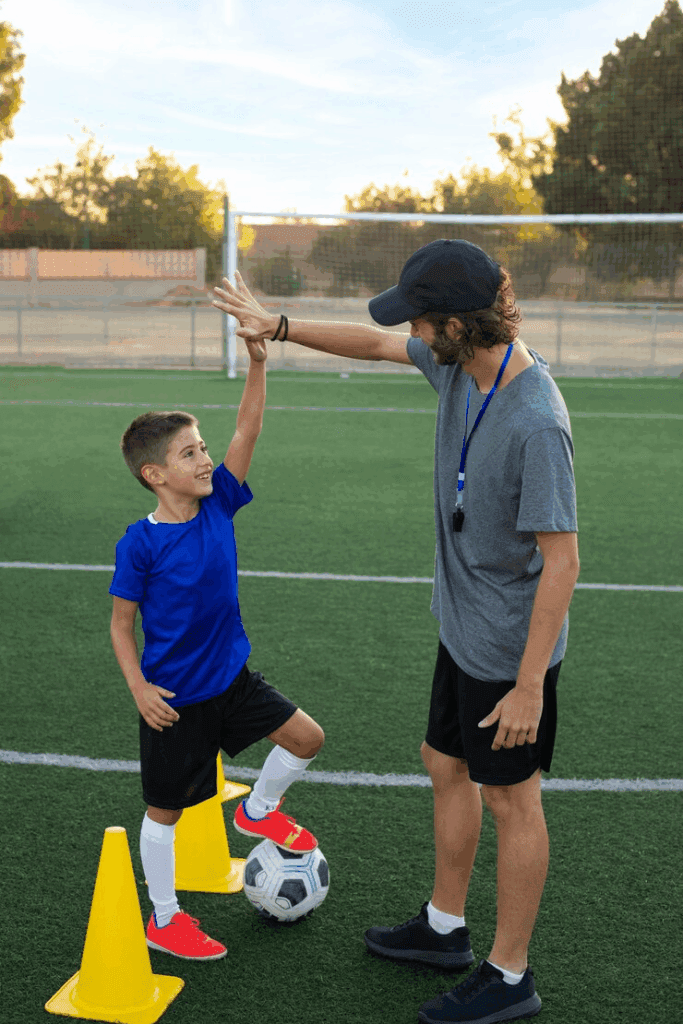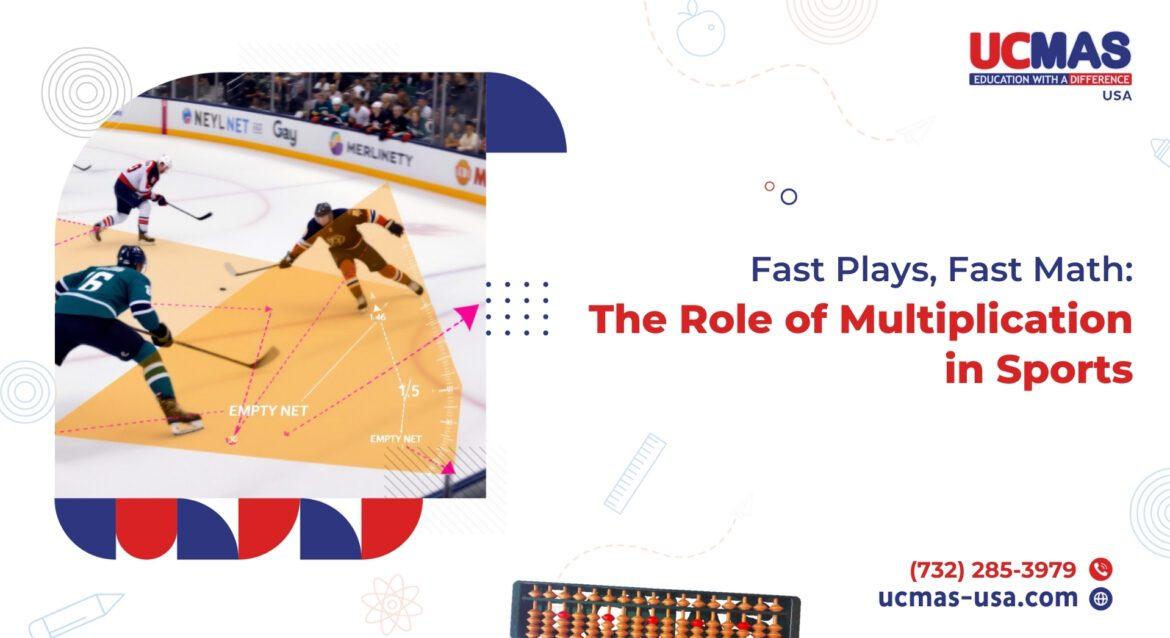What do a basketball player, a swimmer, and a football quarterback have in common—besides sheer talent, intense practice, and loads of energy? Surprisingly… math! Yes, beneath the layers of adrenaline, strategy, and performance, athletes constantly use multiplication to make split-second decisions, calculate advantages, and improve performance.
It’s not just about scoreboards and averages. From calculating distances, angles, and speed, to managing repetitions and strategy, times tables silently power a lot of the action. Most of the time, athletes use mental math without even realizing it. Let’s dive into how multiplication sneaks its way into sport—and how sharpening those skills early can help create champions on the field and in the classroom!
1. Scoring Strategies: When Multiplication Drives the Play
In fast-paced games like basketball or football, every second—and every point—counts. Players and coaches constantly crunch numbers, often without realizing it.
From calculating how many touchdowns are needed to level the score to figuring out if a 2-point conversion makes sense, times tables help athletes make quick, confident decisions under pressure.

Without a solid grip on multiplication, that split-second calculation can take too long, and in sports, that delay could mean a missed shot or a lost game.
2. Repetitions, Sets, and Drills: It’s All Multiplication
Think sports are all running and jumping? Think again. Behind every powerful performance is a well-structured training routine—and guess what? It’s powered by multiplication.
Whether it’s 3 sets of 15 squats, 5 laps around the field, or 10-minute drills repeated 4 times, athletes are doing math every time they train. They might not be pulling out a calculator, but they’re using times tables without even realizing it.
Kids can perform these calculations smoothly when they are confident with their multiplication facts early on. That’s where mental math practice and multiplication worksheets come into play as they help build the math muscles kids need long before they ever hit the gym or field.
3. Speed and Distance: Times Tables in Motion
Whether it’s a sprinter racing down the track or a swimmer slicing through water, speed and distance are the name of the game. But behind every swift move is a simple math equation—and yes, it often involves multiplication!

Athletes use multiplication to figure out how far they’ve gone, how fast they need to move, and how long it will take. These aren’t just numbers—they’re decisions athletes make quickly, often without even realizing they’re doing math!
Building strong times table skills early helps kids do this kind of thinking naturally. With regular mental math practice, children begin to understand how numbers relate to real-world actions, like how long to run, how far to swim, or how much to pace themselves during practice.
4. Team Coordination and Player Rotation
Team sports are all about coordination, not just in movement, but in numbers too. Coaches often rely on multiplication to make sure every player gets fair playtime, the right position, and enough rest.
Multiplication helps coaches balance stamina, strategy, and performance, so the whole team moves like a well-oiled machine. And the players? They’re doing math too, often without knowing it: calculating how many turns they’ve had, when they’re up next, and how much time remains.
When kids get comfortable with numbers early, this kind of confidence in mental math becomes second nature, on and off the field.
5. Sports Statistics: Multiply Your Knowledge
Ever wonder how commentators rattle off player stats so quickly? Or how fantasy sports rankings are calculated? It’s all about multiplication behind the scenes.

These numbers help coaches track performance, fans fuel their trivia knowledge, and athletes measure their growth. Even social media sports posts and fantasy leagues rely on these multiplications to keep the game exciting! Who knew being a math whiz could also mean being a sports expert?
6. Real-Life Application of Multiplication
Think multiplication is just for math tests? Think again. For athletes, it’s a silent teammate, working behind the scenes every single day.
Multiplication is everywhere, whether it’s calculating sets and reps in the gym, tracking hydration needs, or estimating training hours in a month.
These real-life uses prove that multiplication is far more than a school subject; it’s a tool for life. With early mental math practice, kids learn to use numbers to their advantage, just like the pros do.
Want to see how math powers the real world? Don’t miss this blog:
Not every child starts out loving math—or even sports. But both fields teach us that Practice makes progress.
Athletes don’t become champions overnight. It’s daily repetition, drills, and tracking that help them grow. The same applies to math.
Just like a budding athlete does squats and sprints every day, a math learner can build fluency with consistent mental math practice.
From nervousness to number confidence, all through regular mental math training.
How UCMAS Helps Kids Think Fast Like Athletes
Athletes train daily to react fast, make quick decisions, and stay sharp under pressure. That’s exactly what UCMAS does for young minds—only with numbers instead of a ball!

Through abacus math and mental math programs, UCMAS builds speed, accuracy, and focus. Just like athletes develop muscle memory, kids who train with UCMAS develop math memory, allowing them to solve problems in seconds, without a calculator.
So, the next time your child watches their favorite player make a quick play or strategy decision, remind them that kind of thinking comes from practice, and math can be trained the same way.
Help your child gain that competitive edge, in the classroom and beyond. Join a free info session and see how UCMAS turns everyday kids into fast-thinking, number-loving champions.


